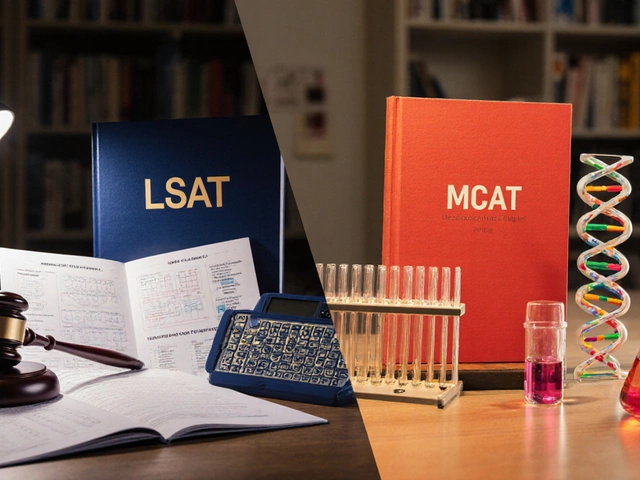Imagine spending years working hard, day after day, getting your undergraduate degree sorted, and then realizing your final GPA isn’t exactly Harvard material. When I first asked about MBA programs at my local coffee shop (yeah, right next to the queue for oat milk lattes), I heard everything from "don’t bother applying under 3.5" to "anything’s possible if your application sparkles." The truth is, if you’re stressing that your GPA will drag down your MBA dreams, you’re definitely not alone. But is there really a minimum GPA too low for MBA admission? And if so, how low is too low?
Why MBA Programs Look at GPA
A GPA might look like a number, but for business schools, it’s a trust signal. It’s a way for admissions teams to quickly spot who is likely to cope with rigorous coursework. According to GMAC’s 2023 Annual Survey, about 85% of business schools use the undergraduate GPA as a significant admissions factor. They hope it predicts your academic discipline, motivation, and ability to survive the stress tornado of an MBA program.
But GPAs are not created equal. Some universities are notorious for grade inflation, while others mark more brutally. Admissions officers aren’t clueless—many know university reputations and grading systems. They usually consider major, course difficulty, and trends over time (did you bomb freshman year but sprint to the finish line senior year?). Your GPA is just part of the puzzle, and in reality, its weight depends on the whole of your application story.
The average GPA for top U.S. MBA programs hovers between 3.5 and 3.7 on a 4.0 scale, according to Poets&Quants. But here’s a twist: most programs don’t publish an official "minimum." Instead, they share the middle 80% range to resist scaring off unconventional candidates. Top programs like Wharton, Harvard, and Stanford have a mean hovering around 3.73, but strong international programs in Europe often weigh GPAs less heavily since grading varies so much.
| Business School | Average GPA (2023) | Range (Middle 80%) |
|---|---|---|
| Harvard Business School | 3.73 | 3.34 – 3.99 |
| Stanford GSB | 3.77 | 3.35 – 3.98 |
| Chicago Booth | 3.6 | 2.9 – 4.0 |
| INSEAD | Varies (No official average) | 2.7 – 4.0 |
| London Business School | Varies | 2.8 – 4.0 |
Your GPA is a part of your whole story. Admissions staff want to see you can keep up, but they don’t expect perfection. They might care more about your career trajectory, GMAT score, or what you do when life yanks the rug out from under you.
So, What GPA is “Too Low” for MBA?
This is the bit everyone obsesses over: where exactly is the cutoff? The straight answer—there’s rarely a hard cutoff. Most programs will consider applications with GPAs as low as 2.5 if other parts shine bright. But here’s where nuance kicks in:
- Top 10 programs rarely admit below 3.0 unless you have an exceptional profile (think Olympics athlete, world-changing startup founder, or other wow factor).
- Mid-tier and international MBAs may consider applicants with GPAs down to 2.7 or even lower, especially if grades improved over time or coursework was hardcore (like engineering or mathematics).
- Professional experience and test scores can sometimes trump GPA, especially for candidates with years in the real world.
- If you’re applying as an international student, some schools will convert your grades to a 4.0 scale. A 60% in India or a 2:2 in the UK is not equal to a 2.5 from a U.S. college, so context matters a lot.
- Some flexibility exists for candidates from underrepresented backgrounds or with life experiences that shaped their academic journey. Admissions officers actually want diversity in life stories, not just transcripts.
If you need cold, hard numbers, most MBAs start asking questions below a 3.0. If your GPA is at or below 2.5, you’ll need a killer reason or something outstanding to compensate (think huge GMAT/GRE score, massive career growth, or an awe-inspiring personal story).
I once met a classmate at Manchester Business School (no, not Nolan, he’s got a story of his own) who came in with a low 2.6 GPA but had started a non-profit that actually changed government policy. Her application was stellar, her recommendations passionate, and her interview authentic. She still got in. So yes, it happens, but it’s rare and always tied to what else you bring.

How to Overcome a Low GPA and Still Get Admitted
If you’re staring at your transcripts and sighing, don’t panic. There’s loads you can do to boost your chances.
- Ace the GMAT or GRE: Nothing signals "I’m not just my undergrad marks” more than crushing your grad admissions test. A 720+ GMAT or 325+ GRE can shift attention from a mediocre GPA and say, "Hey, I’m ready for grad school now."
- Get work experience: Two years is the minimum for most MBA programs, but top schools report that their admitted students average 4-5 years. If your GPA is weak, real-world skills, leadership experience, and scope of responsibility at work matter a lot.
- Take extra courses: These could be in quantitative skills, accounting, finance, or statistics. Doing well (preferably with A grades) in classes at an accredited university or online (think Coursera’s Wharton courses) proves you can handle advanced coursework.
- Explain your GPA in your essays: Don’t make excuses, but if you had extenuating circumstances (major illness, family crisis), give context in an optional essay. Frame it honestly and focus on how you’ve grown.
- Get strong recommendations: MBA programs trust character references. Ask mentors who can vouch for growth, grit, leadership, and how you've overcome setbacks.
- Tell a knockout story: Your personal statement and interviews matter just as much as the numbers. If you can show self-awareness, maturity, and a strong vision for your future, admissions officers will listen.
Admissions officers are human—they’re not looking for bots with spreadsheet-perfect CVs. They want impact makers. If you can prove your best work is ahead of you, your GPA becomes a small piece of a bigger, more exciting picture.
International Students: Unpacking GPA Conversions and Context
This is where things get wild. If you didn’t study in the USA, chances are your grades won’t match the 4.0 system. In the UK, for example, we dole out Firsts, 2:1s, and 2:2s. In India, a 60 might get you an eyebrow raise even though it’s actually respectable.
Universities usually have systems for translating grades, but if yours seems low, don’t freak out until you see how schools convert it. WES (World Education Services) and other official agencies provide conversion reports that admissions use, but some schools have in-house systems. Sometimes, a 2:1 honors is treated on par with a U.S. 3.4-3.7.
What really counts is not the raw number, but how you performed compared to your peers, and what you’ve done since graduation. If you got top marks in subjects like statistics or economics, or you dominated in side projects, be sure to highlight that.
Here’s a quick snapshot to make it less confusing:
| Country | Standard Grading | Approx. U.S. 4.0 Equivalent |
|---|---|---|
| UK | First (70%+), 2:1 (60-69%), 2:2 (50-59%), Third (40-49%) | First = 3.7+ 2:1 = 3.3-3.6 2:2 = 2.7-3.2 |
| India | 70%+ (Distinction), 60-69% (First Class) | 60%+ = 3.0-3.5 |
| France | 16-20 (Très bien), 14-15.9 (Bien) | 16+ = 3.7+ |
Contact each business school directly if you’re unsure. They’d rather you ask than make a bad guess and panic for months. When I helped a friend from Lyon apply, she nearly missed out because she thought her 14/20 was "bad"—but it matched up well with U.S. standards. So double-check before ruling yourself out.

Should You Apply with a Low GPA? Final Advice and Real-World Examples
If you’re hesitating because your GPA isn’t sparkling, remember: business school is about growth, not perfection. Every year, bright, relentless people get into MBAs with subpar grades—because they compensates somewhere else and tell their story honestly.
Here are some real scenarios from my own circle in Manchester and beyond:
- The engineer: Got a 2.7 in undergrad, aced the GMAT with a 740, spent three years leading a product team in Berlin, and joined Cambridge Judge’s MBA.
- The event manager: GPA never touched 3.0, but launched a successful app for sustainability events, brought glowing references, and got into Warwick Business School.
- The ex-military officer: GPA below average due to deployment interruptions, but had undeniable leadership skills. Wrote a powerful personal essay and landed at INSEAD.
My own spouse, Nolan, had a less-than-stunning undergrad record (much too much football and not enough books), but after years thriving in the finance sector and killing it on the GMAT, he got his pick of several UK programs.
So, don’t let a low GPA stop you before you try. Use the optional essay to give context, crush the entrance exam, and be ridiculously honest in your application. You might not fit the mold, but sometimes that’s exactly what business schools want. The MBA world values doers, not just straight-A students. Sometimes life throws curveballs—how you handle them can matter more than your marks ever did.





